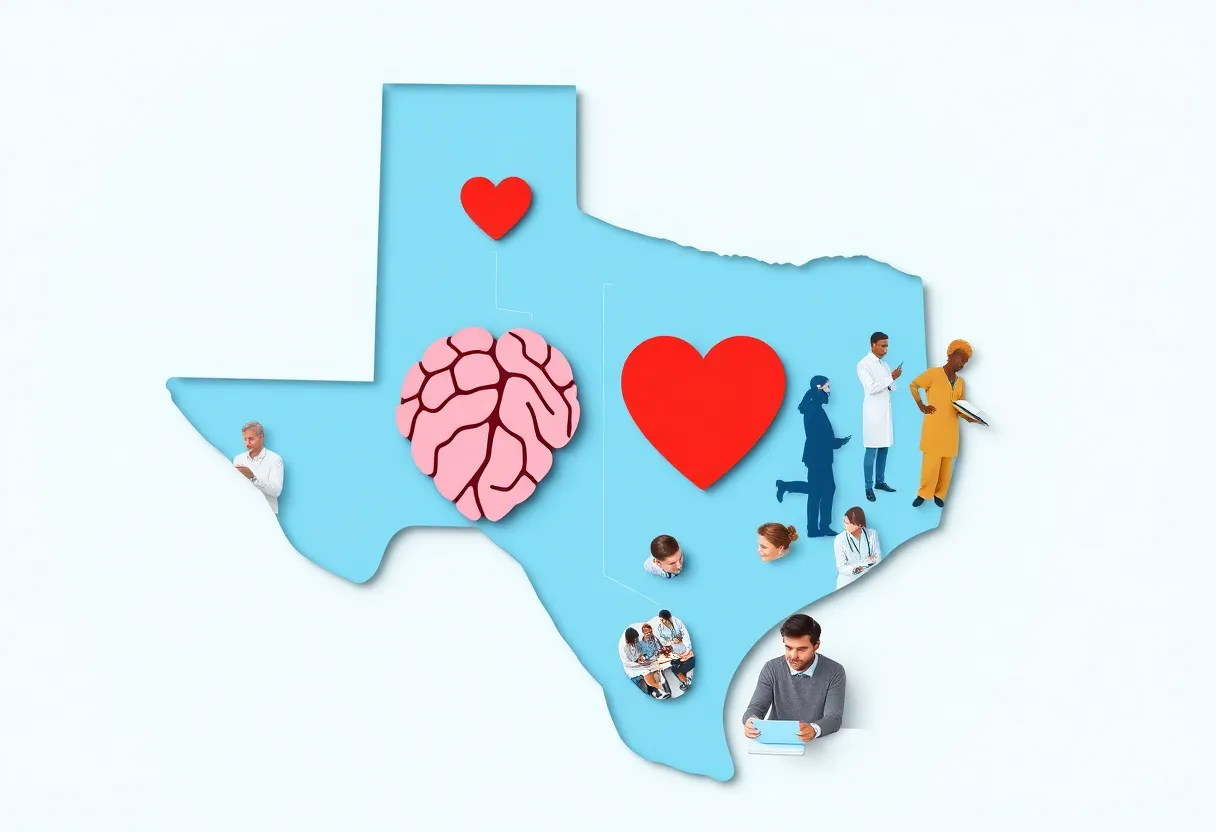News Summary
The Texas State Board of Examiners of Psychologists plans to create a state-specific licensing exam for aspiring psychologists. This decision aims to address concerns over the high costs and accessibility issues associated with the current national examination, the EPPP. Stakeholders, including students and professionals, support this move as a means to alleviate financial burdens on new graduates. The new exam seeks to enhance accessibility while addressing portability concerns across state lines. Overall, this initiative reflects Texas’s commitment to improving mental health workforce readiness.
Austin, Texas – The Texas State Board of Examiners of Psychologists has announced plans to develop its own licensing exam for aspiring psychologists, addressing significant concerns regarding the cost and accessibility of the current national examination. This decision, made public on June 24, 2023, comes in light of rising criticisms surrounding the existing Exam for Professional Practice in Psychology (EPPP), which has been a requirement for most states, including Texas, since the 1980s.
John Bielamowicz, chair of the Texas Behavioral Health Executive Council (TBHEC), has voiced concerns about the EPPP being overly regulated and burdening new psychologists with high financial demands. As it stands, the cost structure for the EPPP requires candidates to pay $600 for the first part, followed by $450 for the second part, in addition to varying fees for different test centers. These expenses can accumulate swiftly, leading many recent graduates to reconsider their options in the field of psychology.
Support for a homegrown exam is evident among students and professionals in the field. As expressed by psychology junior Carlasha Roundtree, there is a shared belief that developing a local exam would alleviate some of the financial stress on recent graduates entering the workforce. Many young psychologists contend that the current costs associated with examinations create a substantial barrier to entry in a profession already facing a workforce shortage.
Bielamowicz has further called into question the actual benefits the EPPP provides in reaching public protection objectives. The introduction of the EPPP-2, a skills-based section launched in 2020, has also been criticized for its repetitive content, adding to the financial strain faced by candidates and ultimately affecting the pipeline of new professionals entering the mental health field.
With the creation of the new Texas licensing exam, state officials aim to enhance accessibility and reduce existing barriers for prospective psychologists. However, there are still concerns regarding the portability of this new exam, particularly whether it will be accepted by other states for licensing purposes. Roundtree noted that if she chooses to pursue a career in another state, she would not hesitate to take their exam to secure dual licenses.
Addressing these concerns, Bielamowicz has assured that the TBHEC plans to work closely with other states during the development of the new Texas licensing exam. This collaboration aims to minimize barriers to practicing psychology not only within Texas but also across state lines, ensuring that an adequate number of professionals can meet the growing demand for mental health services.
The upcoming licensing exam will emphasize maintaining accessibility while still imposing some costs to administer the test. This balance is deemed crucial in making the field of psychology more navigable for aspiring professionals. In summary, the Texas State Board of Examiners of Psychologists is taking definitive steps toward addressing the financial burdens associated with current licensing exams, which may ultimately contribute to a more robust mental health workforce in the area and beyond.
The move to develop a Texas-specific licensing exam represents a significant shift in the state’s approach to regulating the psychology profession. By prioritizing accessibility and working to alleviate financial burdens, Texas aims to promote a healthier balance between regulation and the need for qualified psychologists in an ever-expanding mental health landscape.
Deeper Dive: News & Info About This Topic
HERE Resources
Tomlinson’s Feed to Open New Store in Georgetown, Texas
Legal Battle Unfolds Between SafeLease and Storable in Texas
Additional Resources
- The Daily Texan
- Wikipedia: Psychology Licensure
- Nevada Current
- Google Search: Psychology Licensing Exam Bias
- Nevada Current
- Google Scholar: Psychologist Shortage
- ABC13
- Encyclopedia Britannica: Psychology Exam
- Academic Influence
- Google News: Clinical Psychology Degrees
Author: STAFF HERE GEORGETOWN
The GEORGETOWN STAFF WRITER represents the experienced team at HEREgeorgetown.com, your go-to source for actionable local news and information in Georgetown, Williamson County, and beyond. Specializing in "news you can use," we cover essential topics like product reviews for personal and business needs, local business directories, politics, real estate trends, neighborhood insights, and state news affecting the area—with deep expertise drawn from years of dedicated reporting and strong community input, including local press releases and business updates. We deliver top reporting on high-value events such as the Red Poppy Festival, Georgetown Swirl, and Christmas Stroll. Our coverage extends to key organizations like the Georgetown Chamber of Commerce and the Downtown Georgetown Association, plus leading businesses in manufacturing and tourism that power the local economy such as local wineries and historic downtown shops. As part of the broader HERE network, including HEREaustin.com, HEREcollegestation.com, HEREdallas.com, HEREhouston.com, HEREgeorgetown.com, and HEREsanantonio.com, we provide comprehensive, credible insights into Texas's dynamic landscape.






